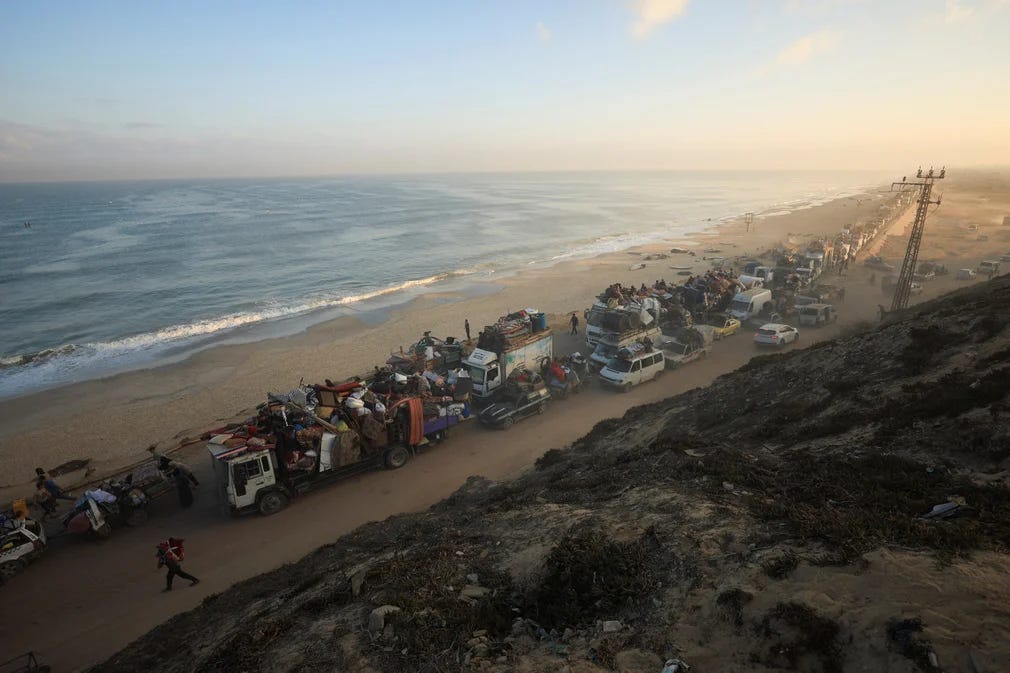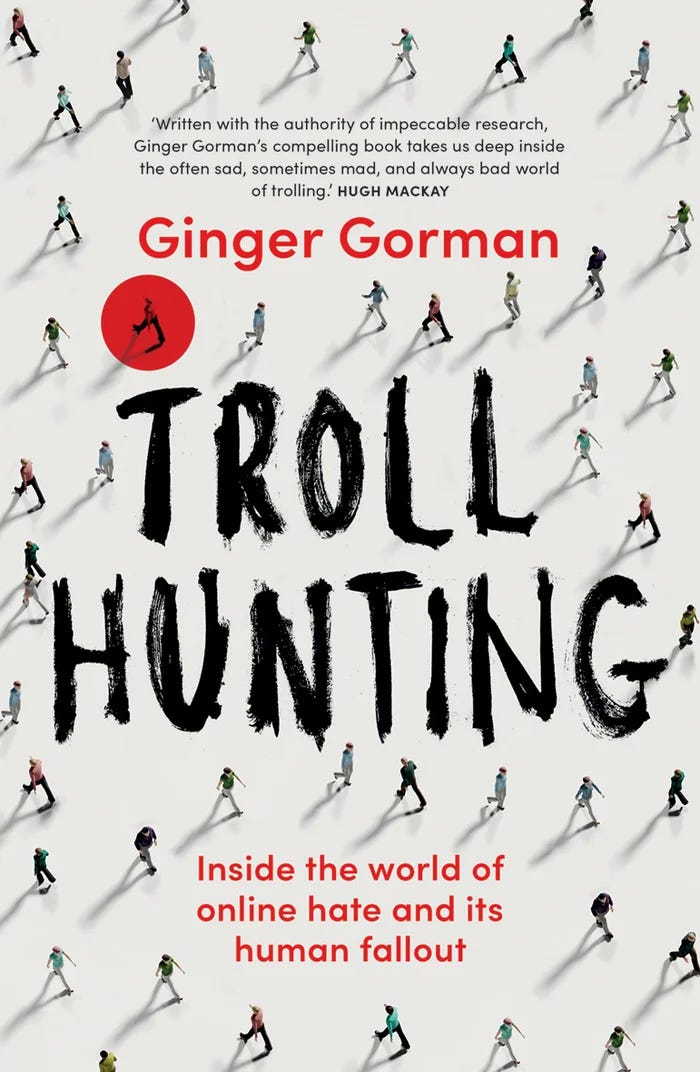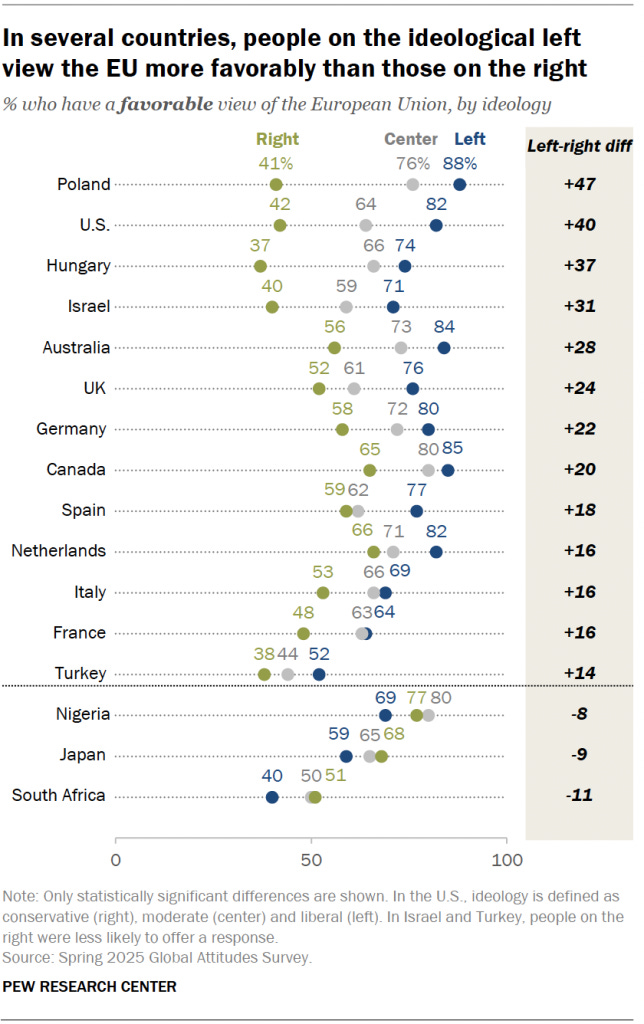The 282nd Block: The war on science
And how money talks
This week…
Your reading time is about 5 minutes. Let’s start.
Your Wikipedia this week: GNAA
And now, a selection of top stories on my radar, a few personal recommendations, and the chart of the week.
ICYMI: The Previous Block was about satire and access to information.
CORRECTION NOTICE: None notified. SCICOMM
The current war on science, and who’s behind it
Diana Gitig for Ars Technica:
Antiscience propaganda has been used by authoritarians for over a century. Stalin imprisoned physicists and attacked geneticists while famously enacting the nonsensical agricultural ideas of Trofim Lysenko, who thought genes were a “bourgeois invention.” This led to the starvation of millions of people in the Soviet Union and China.
Why go after science? The scientific method is the best means we have of discovering how our Universe works, and it has been used to reveal otherwise unimaginable facets of reality. Scientists are generally thought of as authorities possessing high levels of knowledge, integrity, and impartiality. Discrediting science and scientists is thus an essential first step for authoritarian regimes to then discredit any other types of learning and truth and destabilize their societies.
Loosely linked:
Facebook data reveal the devastating real-world harms caused by the spread of misinformation by Andrea Carson (La Trobe University) and Justin Phillips (University of Waikato) for The Conversation.
The Tylenol/Paracetamol autism scare poses a grave challenge for science communicators by Chirantan Chatterjee for LSE Blog.
Improving impact infrastructure: key predictors of researchers’ policy engagement based on behavioural science by Henriette Canino, Vivi Antonopoulou, Danielle D’Lima, and Chris Tyler for Nature.
Experts at global summit warn fact-checking is no longer enough to stop disinformation by César López Linares for LJR.
THE PRESS
After surviving the Syrian civil war, an underground newspaper makes a triumphant return
Aubin Eymard for New Lines Magazine:
It was March 2011, and with the outbreak of the Arab Spring, the first demonstrations erupted across Syria demanding the departure of President Bashar al-Assad. In the suburbs of Damascus, the country’s capital, the town of Darayya would become one of the epicenters of the revolution.
Since the early 2000s, a pacifist opposition movement had been taking shape there, influenced by Imam Abdel Akram al-Saqqa and the well-known activist Yahya Sharbaji. Within days, dozens of demonstrators began offering flowers to regime soldiers sent to disperse the gatherings. The soldiers responded quickly by firing live rounds into the crowds. Syria was slipping into a civil war that would last nearly 14 years.
At that moment, a group of activists secretly organized to create a newspaper to distribute under the regime’s radar. Here began an epic quest for press freedom: the story of the independent Syrian media outlet Enab Baladi.
Loosely linked:
UN and rights groups condemn reported jailing of Wuhan Covid citizen journalist Zhang Zhan by Amy Hawkins for The Guardian.
Philippines: Marcos Jr. touts press freedom despite threats by David Hutt for DW.
Yes, clever headlines still matter by Matthew Crowley for Poynter.
FOLLOW THE MONEY
Deaths spotlight dark side of Europe-backed microloans in Cambodia
Leila Goldstein and Phon Sothyroth for FTM via Pulitzer Center:
First came a bad harvest. Then came the creditor. Now, Bun Ou is dead.
The cassava and pig farmer had been living in one of Cambodia’s most remote regions, Preah Vihear province, in the north of the southeast Asian country. When her farm became unproductive, loans seemed like a good way to stay afloat in between harvests.
She went to one of Cambodia’s biggest banks, Hattha Bank, and took out two microloans in 2022 totalling some 9,000 euros.
About a year later, the 51-year old was struggling to pay back the high interest payments, and the credit officer was breathing down her neck.
It came to a head one evening in January 2024, when a Hattha Bank credit officer came to Ou’s home to deliver a letter, asking her to show up at the bank two days later.
“In the event that you do not arrive by the above deadline, Hattha Bank will take legal action,” the letter read.
Ou, who could not read, listened to her daughter explain the letter. The next morning, she was found dead. A police report, seen by Follow the Money, ruled her death a suicide.
Loosely linked:
How we probed a maze of websites to tally Brazilian government shark meat orders by Philip Jacobson and Kuang Keng Kuek Ser for Mongabay.
In Brazil, sports reporters are cashing in by going public with their team loyalties by Leonardo Coelho for LJR.
The publishing industry has a gambling problem by Tajja Isen for The Walrus.
Other curious links, including en español et français
LONG READ | Should we edit nature? by David Farrier for Aeon.
INFOGRAPHIC | Israel’s West Bank strategy by Angus McDowall, Ally J. Levine, Sam Hart, Prasanta Kumar Dutta, Mariano Zafra, Ali Sawafta, Charlotte Greenfield, and Pesha Magid for Reuters.
PHOTO GALLERY | Behind the scenes at the UN General Assembly by Reuters.
Lo reconocemos cuando lo vemos por Xosé Manuel Pereiro en CTXT.
La noche final de los últimos fusilados del franquismo, la dictadura que murió matando: “Oí los disparos y grité” por Marta Borraz en elDiario.es.
Cambiar tu forma de hablar porque lo pide tu jefe: España sigue discriminando por el acento por Stephanny Pinzón Triana en El País.
Véronique Hivon déplore sur la couverture médiatique « centrée sur Trump » par Laurent Mercier-Roy dans Radio-Canada.
Comment décoloniser la transition énergétique ? par Sophie Kloetzli dans Usbek & Rica.
Comment ChatGPT choisit ses sources pour vous répondre sur l’actualité par Olivier Koch dans La revue des médias.
What I read, listen, and watch
I’m reading Troll Hunting (2019) by Ginger Gorman, who takes us into the world of shitposting and cyberbullying.
I’m listening to Al Jazeera’s The Inside Story on how important the UN General Assembly is in today’s world.
I’m watching BBC World’s documentary on Russia’s teenage mephedrone market.
Chart of the week
A median of 62 per cent of adults across 25 surveyed countries say they have a favorable opinion of the EU according to a Pew Research Center survey conducted in the spring.





Great insight into the amazing work by the Mongabay team. Thanks for bringing it to my attention.